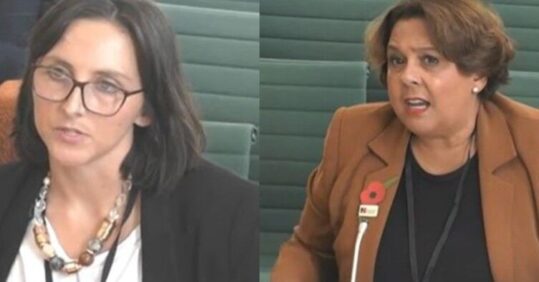Lack of support for GPNs over sexual harassment at work, MPs told

There is ‘no support’ for general practice nurses and primary care colleagues experiencing sexual harassment and assault in the workplace, MPs have been told.
More widely, the number of nurses reporting instances of physical, sexual and verbal abuse is on the rise.
These were concerns raised at the Women and Equalities Committee session on sexual assault and harassment within the NHS workforce, held on Wednesday.
The session, held in the Houses of Parliament, came in response to an article by the British Journal of Surgery that showed that high levels of female surgeons are the target of sexual harassment.
Giving evidence to MPs during the meeting, chief nurse at the Royal College of Nursing (RCN), Professor Nicola Ranger, said the scale of sexual harassment experienced by nurses was ‘significant and very challenging’.
While she believed instances were ‘massively underreported’ by the profession, she said the RCN had seen an increase in reports to its own helpline in the last year.
Professor Ranger, who was previously a chief nurse in South London, told the committee how she once had to hire for a matron post specialising in violence and aggression reduction because the issue was the trust’s ‘number one clinical incident’.
Related Article: QICN bids farewell to Dr Crystal Oldman as she retires from CEO role
‘I had nurses who were bitten, who were sexually assaulted, arms broken – I think the scale [of the problem] is extraordinary,’ she said.
While Professor Ranger recognised there were instances of ‘colleague to colleague’ sexual harassment, she felt ‘our biggest challenge is patient to nurse’.
The level of sexual harassment and assault faced by nurses at work was also having a ‘huge impact’ on retention of the workforce, added Professor Ranger.
‘I think it is a real tragedy,’ she told the cross-party committee.
The session also highlighted the potential for enduring sexual harassment and assault to make people reluctant to join the profession.
Professor Ranger said: ‘We’ve got to structurally sort out the problems, but also think about our responsibility to recruit people. Sadly, at the moment, everyone in health care needs to feel more valued.’
She added: ‘Nursing is in a very difficult place in this country, not being valued for the brain and the heart that you need to be a nurse, because we are 90% female.
‘Actually, that has affected our pay, our terms and conditions, how we’re treated… and that is absolutely wrong.
‘It’s time that nursing staff are respected for both their brains and their heart, and this behaviour has got to stop, from patients as well as colleagues.’
The committee meeting also discussed the need for better data collection and improved support to help nurses and colleagues report their experiences.
Related Article: RCN to offer ‘safe space’ to discuss Supreme Court ‘sex’ ruling
‘We can’t have slogans, we’ve got to have action. And I think that’s about supporting and really listening,’ said Professor Ranger.
‘These things are not going to be solved quickly… we’ve got to overtly look and listen for those experiences.’
Also providing evidence within the session was Dr Chelcie Jewitt, co-founder of Surviving in Scrubs – a campaign group sharing survivor stories of sexism, harassment, and sexual assault in the healthcare workforce.
In the 16 months that the campaign has been running, Dr Jewitt said the group had received 187 submissions from health professionals.
Dr Jewitt, who is an emergency medicine registrar, told the committee the problem affected ‘every aspect of healthcare’.
While the session focused largely on the culture of hospital trusts, Dr Jewitt told MPs of the need to support staff working in primary care.
‘We have to remember our general practice, our primary care colleagues, as well because that is a completely different ball game, because they are smaller business-based organisations where there may, in some places, be only a couple of GPs, a couple of practice nurses,’ she said.
‘There’s no support out there for them at the moment either.’
Related Article: ‘Concerning acceleration’ in drug-resistant gonorrhoea ahead of vaccine programme
The session, which also heard from Tamzin Cuming, chair of the Women in Surgery Forum at Royal College of Surgeons of England, will feed into the cross-party committee’s current inquiry on ‘The escalation of violence against women and girls’.
Earlier this year, the RCN signed a new NHS workplace charter that aims to help eradicate sexual misconduct within the healthcare system.

See how our symptom tool can help you make better sense of patient presentations
Click here to search a symptom




